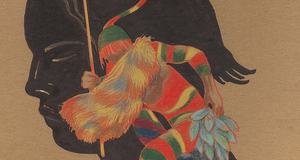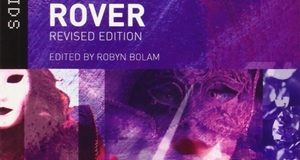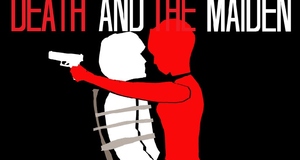Persuasion and Agency in Aphra Behn's Oroonoko
By
2011, Vol. 3 No. 04 | pg. 1/1
KEYWORDS:
Aphra Behn’s 1688 novel Oroonoko leaves many questions unanswered.1 In one of many seeming contradictions within the text, one wonders how Behn, personally victimized by Charles II and an economic system that sought to disenfranchise her,2 would glorify a socio-political system that affirmed not just masculine dominance, but the essential and innate authority of a male whose moral and political agenda enforces the oppression of her gender; furthermore, her de facto assertion of authority as both the creator of the work and an influential character implies a certain amount of agency and even responsibility within the system. It would seem, given the novel’s final lines in praise of Oroonoko (who as a representation of the monarch expresses a need for control and domination manifested several times in his objectification of his wife) 3 and ultimately “the Brave, the Beautiful, and the Constant Imoinda” (100),4 that Behn finds submission intrinsic to the royalist system which she attempts to justify. However, an important aspect of our understanding of the novel lies in the manifestation of agency through persuasion: because the conflicts of agency are articulated by the characters and narrator in the text, we can see how Behn’s involvement ties her inextricably to its socio-political discourse. The first personal interaction of the novel occurs when Oroonoko meets Imoinda and “the Sweetness of her Words and Behaviour while he stay’d, gain’d a perfect Conquest over his fierce Heart” (45). This is the first of many scenes in which the prince is persuaded towards an emotional or physical action; it happens to be the least verbal and the most positive. After then being physically betrayed by the lusty King, Oroonoko then persuades Aboan to help him physically betray the King (breaking his rules, penetrating his realm of guardianship and ‘his’ woman, etc.). And so on: the novel cycles through acts of persuasion and violence that enable the masculine characters (Oroonoko and his foes) to assert agency through dominance of each other and their possessions (women). For a novel that so clearly espouses a royalist political outlook (Oroonoko being so often described in terms of European nobility), the fact that Oroonoko is so easily persuaded from standing on principle is quite troubling. Many times he is persuaded, by others or himself, out of the one foolproof method of asserting agency—terminal violence against the self. On page 60, his army “made such Out-cries as rouz’d the Prince from his amorous Slumber, in which he had remain’d bury’d for two Days,” and instead of dying as promised, he slaughters the enemy army single-handed in a return to noble form. Similarly, having been persuaded to board the slave ship and then physically betrayed by the Captain, promises to commit suicide by hunger and is convinced otherwise by the captain, who promises an absurd contract of liberation: “[he] believ’d in an instant what this man said” (64), despite the previous betrayal and the fact that he is speaking to an agent, the Captain being too ashamed to face him. Perhaps these are representations of the tribulations of Charles I, but Oroonoko’s malleability, given his innate nobility, is frightening and contradictory—one wonders how born rulers can be so easily confounded. Regarding Oroonoko’s character, the most problematic persuasion in the novel by far is in the episode of Imoinda’s murder. He convinces her (quite easily) to accept death at his hands, solely so that his enemies might not assert their dominion over him through her. However, he betrays her by never fulfilling “his Design first of Killing her, and then his Enemies, and next himself” (95), and the novel ends with the piece-by-piece destruction of his body as constructed on page 43. The passage “A thousand times he turn’d the Fatal Knife that did the Deed, toward his own Heart, with a Resolution to go immediately after her; but dire Revenge, which now was a thousand times more fierce in his Soul than before, prevents him” (96) tells us that his inability to resolve himself through persuasion renders him completely impotent. He “remain’d in this deploring Condition for two Days” (96), but unlike the previous occasion in which he defeated an entire army after two days of lovesick melancholy without nourishment, he still can’t persuade himself to take action. The incongruity of his actions renders the superlatives of his tragic condition meaningless, so one questions the superlatives of his noble character as described earlier in the novel.At another level of discourse lies a much more problematic persuasion which has come to light more recently as Behn has taken her place in the literary canon. She takes particular care to involve herself (or a literary depiction of herself) in the novel, claiming to be “an Eye-Witness to a great part” (37), adding numerous details of her personal involvement with Oroonoko and the politics of Surinam, and specifically relying on “the reputation of my pen…to make [Oroonoko’s] Glorious Name to survive to all ages” (100). However, as a participant and an acknowledged contributing member of the class (the middle class, or parliamentarians, we could say) that betrays the noble prince, she herself admits to being persuaded against exercising her power on his behalf, as seen on two separate occasions: We were possess’d with extream Fear, which no perswasions cou’d dissipate, that he wou’d secure himself till Night; and then, that he wou’d come down and Cut all our Throats. This apprehension made all the Females of us fly down the River, to be secur’d; and while we were away, they acted this Cruelty: For I suppose I had Authority and Interest enough there, had I suspected any such thing, to have prevented it. P. 92 I was perswaded to leave the Place for some time; (being my self but Sickly, and very apt to fall into Fits of dangerous Illness upon any extraordinary Melancholy). P. 98 Both times, she submits herself to the masculine stereotype of female weakness and cannot be persuaded (by others or herself) to take action on behalf of Oroonoko. Her assertion on both occasions of innocence through ignorance seems disingenuous given the insinuation of her literary and historical agency into the text itself. If her glorification of Imoinda implies the obligation of female submission to noble authority, Behn’s own authority as both an author and a character is shown here to be by nature ambiguous and similarly susceptible to masculine intervention and oppression. Furthermore, these betrayals tie Behn’s assertion of agency to her naiveté just as closely as Oroonoko’s, despite their differences in race, class, and gender. These passages tie the idea of persuasion directly to that of agency in the physical as well as socio-political and artistic discourses. There are four common methods by which literary characters gain agency: (1) forced introspection, for instance in Gawain and the Green Knight, Gawain breaking free of his chivalric archetype by acknowledging the fiend within his pentangle of virtue (the only examples of this in Oroonoko are in the statements at the beginning and end of the text), 7 (2) naming, for instance the renaming of Oroonoko as a expression of white (or parliamentarian) dominance, which Oroonoko contests only briefly and in a fit of anger, 8 (3) violence, as seen quite obviously in the numerous explosions of violence in Surinam and even the prince’s ‘ravishing’ of Imoinda on page 56, and (4) persuasion, as explicated previously. Agency in Oroonoko is seen mostly through cycles of persuasion and violence—the characters exist and interact as archetypes, and though the cross-cultural interactions and character flaws create tension, conflict resolution by these methods forms the lens granted us by Behn for the examination of interpersonal relationships. The fact that argument, as opposed to violent chivalric confrontation, rational introspection, or mere denomination,9 opens the text to a multiplicity of meanings implies that not only can anyone gain agency (including women), but that meaning itself is subject to discourse as opposed to essentialist assertions, including the political and anthropological assertions of Behn herself. It is this purposeful complicity in an ambiguous and self-contradictory prose form that earns Behn her place in literary history. Endnotes1.) I am referring to the work as a novel, as it is the most convenient word at this time and I do not wish to concern myself with the semantics of categorization at this point. Also, I will refer to Behn in concert with the narrator: given her stated attempt at realism in the novel (see the opening) and the similarity between this work, her catalogue, and her documented political beliefs, I believe this is a fair (though undeniably convenient) assumption. 2.) I am referring to her well-documented stay in debtors’ prison as a result of a debt for her spying services, unpaid by the king, and her similarly well-known struggle to demonstrate and assert the artistic value of literature written by women. 3.) This understanding of Oroonoko should be taken as axiomatic at this point, given Behn’s views as expressed in other works, her patronage by the Stuart house, her renaming of the character as Caesar, and the numerous parallels between the text with the English civil war and Restoration. 4.) Behn, Aphra. Oroonoko; or, The Royal Slave. Edited by Catherine Gallagher. New York: Bedford St. Martin’s, 2000. 7.) See “Interpreting Gawain: the Hermeneutics of Translation” by Tristan Axelrod. The absence of introspection in Oroonoko likewise stems from the archetypical nature of the characters. One could argue that the replacement of individual introspection with verbal (i.e. textual) argument is part of the stylistic breakthrough that brought Behn to the novel form as opposed to the romance or epistolary. 8.) The facts that Oroonoko’s new name (Caesar) is an unquestioned manifestation of his inner and outer character traits, and that Imoinda’s (Clemence) is neither explicated nor continued after two paragraphs seem to deny that this issue might have importance to the socio-political discourse of the narrative. This reference on page 93, “you shall see that Oroonoko scorns to live with the Indignity that was put on Caesar,” is the one place in which the narrator implies that the dual names might represent different conceptions of the self with contrasting levels of agency; however, Oroonoko is soon persuaded (or possibly silenced by the narrator) from further expression of this viewpoint. Furthermore, the granting of names to many characters (Clemence, Onahal, Aboan, Tuscan, etc.) seems to have no impact on their agency; they exist only as tools (or Others) in the respective and exclusive episodes of the Oroonoko-Caesar narrative. 9.) I am referring to the conventions of the romance, in which conspicuously eponymous characters generally gain agency and create themselves through quests, fighting battles and winning women’s hearts, but usually without the multiple strains of discourse and verbal communication seen in the novel form. Suggested Reading from Inquiries Journal
Inquiries Journal provides undergraduate and graduate students around the world a platform for the wide dissemination of academic work over a range of core disciplines. Representing the work of students from hundreds of institutions around the globe, Inquiries Journal's large database of academic articles is completely free. Learn more | Blog | Submit Latest in Literature |
















